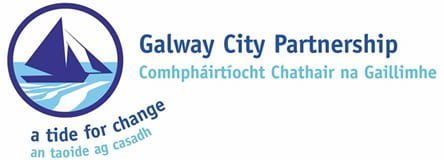
Social Inclusion and Community Activation Programme
(SICAP) 2024 – 2028

The Social Inclusion and Community Activation Programme (SICAP) 2024-2028 provides funding to tackle poverty and social exclusion at a local level through local engagement and partnerships between disadvantaged individuals, community organisations and public sector agencies.
Administered by Pobal, SICAP 2024-2028 is co-funded by the Irish Government, through the Department of Rural and Community Development, and the European Social Fund Plus under the Employment, Inclusion, Skills, and Training (EIST) Programme 2021-2027.
SICAP is managed locally by 33 Local Community Development Committees (LCDCs) with support from Local Authorities. Programme actions are delivered by Programme Implementers across 53 Contract Areas/ Lots.
SICAP is a targeted, holistic programme, for those who are most disadvantaged and less likely to access mainstream services, which provides supports directly to beneficiaries and links them into existing services. Programme Implementers (PIs) engage with marginalised communities and service providers using a community development approach to address issues relating to social exclusion and inequality. SICAP also prioritises local engagement and partnerships, between SICAP Programme Implementers, disadvantaged individuals, community organisations and public sector agencies.
It is a multi-faceted programme that provides supports to respond to individual and community needs, aiming to ensure that beneficiaries receive quality, tailored supports, while also allowing flexibility to adapt actions to local need. It enables bottom-up approaches within the framework of a national programme which provides targets, performance indicators and requirements.
Galway City Partnership
Lot No: 26-1
Community Response to Domestic Abuse Western Regional Network: Interagency & Community Collaboration
Community Response to Domestic Abuse Western Regional Network: Interagency & Community Collaboration
SICAP Case Study 2018 – 2023
Core Theme: Collaboration SICAP Target Group: Disadvantaged Women
This case study has been developed to showcase the work carried out by the Community Response to Domestic Abuse Western Regional Network between 2018 and 2023.
The target audience for the video is community-based organisations and local community groups across Galway, Mayo & Roscommon. Our aim is to grow the membership of the Network to reach further into each part of the region to raise awareness, develop resources and promote best practices.
Membership of the Network includes Family Resource Centres from Galway, Mayo and Roscommon, Galway City Partnership, South Mayo Partnership, Galway Rural Development, Roscommon LEADER Partnership, together with frontline domestic violence organisations, COPE Galway Domestic Abuse Service, Domestic Violence Response (DVR), Mayo Women’s Support Services and Roscommon Safe Link.
It is long recognised and established that best practice in responding to domestic abuse involves adopting integrated, community-based approaches. The aim of community-based strategies should be to create a collective response to the safety of women. The Community Response to Domestic Abuse Western Regional Network members work from community development principles to develop a collective response to tackle social injustice and inequalities in Irish society, in this case, in relation to women experiencing domestic abuse.
The Networks Mission is to “promote a collective, community-based response to domestic abuse by working collaboratively as a Network in solidarity with women and our communities to challenge all forms of domestic abuse and coercive control- raising awareness developing resources and promoting best practice”.
The Case Study explicitly addresses the core theme of Collaboration and demonstrates the ability of the SICAP programme to work successfully with other stakeholders, in this instance Family Resource Centres, other LDCs and Domestic Abuse Frontline Services across Galway, Mayo & Roscommon.
Key Achievements Between 2018 & 2023:
- Annual awareness raising during The 16 Days of Action Opposing Violence Against Women, Go Purple, One Billion Stars and White Ribbon Campaigns.
- Development of The Steps To Safety Leaflet. This leaflet provides definitions and explanations of Safety Orders, Barring Orders and Protection Orders as well as providing information on who to contact for assistance.
- Open Doors. Video highlighting the frontline domestic violence organisations across the region as well as organisations such as FRCs who provide signposting/referrals and outreach bases for the frontline services. Developed during Covid when people relied on social media for information & supports.
- Training Network members on Domestic Violence Awareness and how to respond.Training volunteers in community projects on Domestic Violence Awareness and how to respond.
- The Updating of a Code of Practice for Organisations to Respond to Domestic Abuse in 2018 and a Checklist of DV organisations working on the front line.
- The development of a Strategic Plan in 2022.
- The hosting of a National Domestic Abuse Awareness Conference in Nov 2022.
Domestic Abuse continues to rise in Ireland. The Women’s Aid Impact Report 2022 outlines 31,229 women were in contact with its National Freephone Helpline and Regional Face-to-Face services, demonstrating a 16% increase on the previous year and the highest ever recorded.
The Community Response to Domestic Abuse Western Regional Network strives to achieve its vision to eliminate abuse against women and to work towards the achievement of a society where women have equality, respect and safety and are free from control.
The Social Inclusion and Community Activation Programme(SICAP) is co-funded by the Irish Government, through the department of Rural and Community Development, and the European Union through the European Social Fund Plus under the Employment, Inclusion, Skills, and Training (EIST) Programme 2021-2027”









